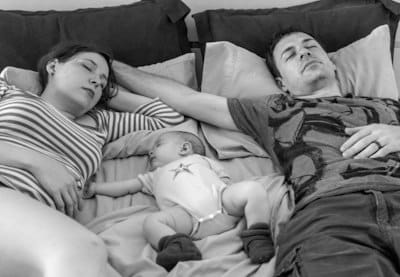The journey into parenthood, marked by both joy and challenge, universally introduces the experience of disrupted sleep. Acknowledging the anticipation of frequent nighttime care, new parents often find themselves unprepared for the stark reality. Rather than dwelling on questions such as “What’s wrong with my baby?” or “What’s wrong with me?” a shift in perspective is warranted. Instead of fixating on the elusive goal of getting the baby to sleep, it may be more beneficial to inquire, “Why do I think they should be sleeping now?” and “What am I basing my expectations on?”
Three predominant perspectives on infant sleep norms emerge: the cultural norm, the biomedical norm, and the biological or evolutionary norm. The cultural norm, deeply ingrained in society, dictates that “good babies” should sleep through the night, often associating crying with necessary developmental milestones. Biomedical norms, derived from clinical studies, establish average sleep durations for infants, often presented in charts and parenting literature. However, a closer examination reveals the inadequacy of these averages, given the considerable variations in actual sleep patterns.
The biological or evolutionary norm introduces a more realistic perspective. Understanding the evolved biology of mothers and babies sheds light on the intricacies of infant sleep during the initial months of life. Human babies, akin to their mammalian counterparts, necessitate frequent feeding due to the composition of their mother’s milk. This constant need for nourishment explains why infants wake frequently at night and seek contact with caregivers. Recognizing this biological perspective challenges the cultural and clinical expectations prevalent in Western societies.
Acknowledging the normalcy of frequent night waking, rooted in evolutionary biology, can guide parents in navigating other facets of infant sleep. Recognizing the development of a circadian rhythm in babies, influenced by light and dark cycles, informs parents about exposing infants to daylight early in the day. Adjusting bedtime and encouraging short daytime naps in natural light aligns with biologically normal approaches to sleep, promoting healthier sleep patterns for both baby and family.
Support from friends and family plays a crucial role in shaping realistic expectations about baby sleep. Shifting the focus from questions framed around the perceived problems of a baby’s sleep to inquiries about parental well-being and coping strategies fosters a more supportive environment. Normalizing the challenges of night waking emphasizes the importance of seeking help and getting out of the house, beneficial for both baby sleep and parental mental health.
Empowering parents to experiment with approaches that suit their baby and family, rather than rigidly adhering to cultural or biomedical norms, alleviates anxiety and enhances overall well-being. In the journey of understanding normal infant sleep, allowing the baby to guide the way becomes paramount. Parenthood is a unique voyage, and as new parents navigate the uncharted waters of sleepless nights, embracing the biological norm provides a compass for a more serene and fulfilling journey.

